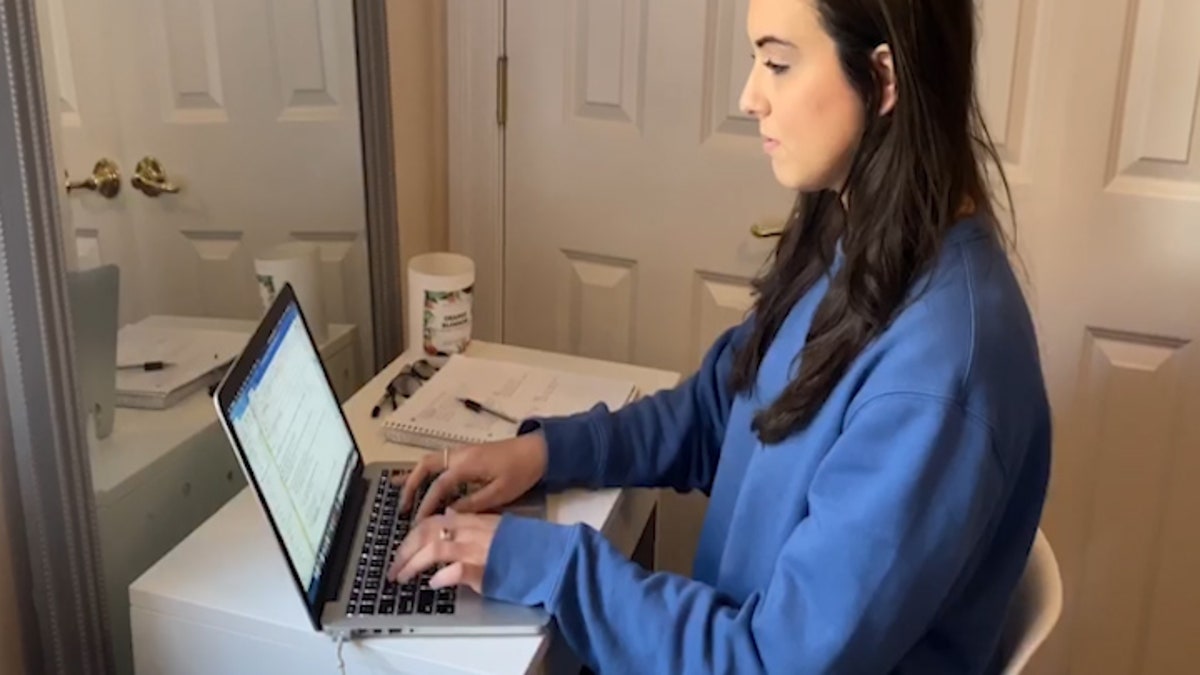The unlucky generation strikes twice amid pandemic
Economists say many millennials battled the workforce during one of the worst economic disasters in modern history in 2008.
Get all the latest news on coronavirus and more delivered daily to your inbox. Sign up here.
Student debt, empty retirement funds, lower earnings and fewer investments. These are all things that describe many millennials today, who have now been set back even further by the coronavirus pandemic.
Economists say it’s the estimated 73 million millennials in the United States who could suffer the greatest financial setbacks from the novel coronavirus.
Kasi Santarelli, 31, a health-and-beauty business owner in New York City, is part of that statistic. Santarelli says her business was finally taking off. Now, she’s barely making sales, with her business dropping 60 percent.
"Millennials really cannot catch a break," Santarelli said. "Now it's to the point where I live in this building and I can't afford my rent and I've been set back so much … A lot of people around my age are either furloughed, unemployed now, or they've just flat-out been fired."
CLICK HERE FOR FULL CORONAVIRUS COVERAGE

Thirty-one-year-old Kasi Santarelli, a health-and-beauty business owner in New York City, is part of that statistic. Santarelli says her business was finally taking off. Now, she’s barely making sales, with her business dropping 60 percent. (Elina Shirazi)
Washington, D.C. economist and American University professor Gray Kimbrough says many millennials battled the workforce during one of the worst economic disasters in modern history in 2008. Once again, they are getting knocked off their feet.
"A lot of millennials, it feels like just we're back where we were and now we're experiencing something very similar," Kimbrough said. "The entire millennial generation is really in that sweet spot where you're still in your first decade or 15 years of your career and you're trying to move up and to get better jobs … just have it all pulled out from underneath you."
ILLINOIS SEN. PLUMMER: CORONAVIRUS BAILOUT – DON’T WASTE FEDERAL FUNDS ON MY STATE'S BANKRUPT SYSTEM

Washington, D.C. economist and American University professor Gray Kimbrough says many millennials battled the workforce during one of the worst economic disasters in modern history in 2008. Once again, they are getting knocked off their feet. (Elina Shirazi)
"I feel like I'm working harder than somebody, maybe 20 years ago in a typical nine-to-five job," he added. "I have nothing saved for my retirement. I have nothing saved in case I get sick. I don't have health insurance. Most of my friends don't own homes, like 90 percent don't own homes, 90 percent have no retirement. And I fall into that category. It's like we are so set back from when we first started. And, you know, we get a lot of flack because people at our age, you know, 30 years ago, had homes, had families and all this and we're starting so much later because it's so much more of a financial obligation and jobs are paying less and there's less opportunities."

Economists say it’s the estimated 73 million millennials in the United States who could suffer the greatest financial setbacks from the novel coronavirus. (Elina Shirazi)
Emily Smith, a 27-year-old senior digital strategist at a large communications agency in Washington, is also attending Georgetown University as a part-time MBA student. She said many of her friends share the concerns Kimbrough described.

Washington, D.C. economist and American University professor Gray Kimbrough says many millennials battled the workforce during one of the worst economic disasters in modern history in 2008. Once again, they are getting knocked off their feet. (Elina Shirazi)
"I do have several friends who have lost their jobs as a direct result of the pandemic. Just personally speaking, it's also impacted my retirement savings and my spending for sure. So, you know, as a result of the market's crashing along with everyone else's, I know my 401K definitely plummeted," Smith said.

The latest research by Data for Progress shows more than half of those polled under 45-years old have lost jobs or hours during the pandemic. Compare that to only 26 percent of people over the age of 45. (Elina Shirazi)
"It's so much harder on us because, you know, back in the day, not everyone went to college and now there's essentially a stigma that you have to go to college," Santarelli said. "So you're coming into the world and you already have debt … parents, like my parents growing up, most of them had a two-income household or they didn't need to. The husband works. The wife stayed home. It's not like that anymore due to inflation. And, you know, things are just so different."
She added: "This is going to probably ruin me, and I'm 31. It should be the time where I'm settling down and wanting kids and getting married, and I won't be able to do that because I'm just going to be so far set back.".
Kimbrough said: "There is a long tradition of blaming young people … we are also getting into this stage where people think every young person is a millennial. That isn’t true … they are a unique group with their own disadvantages."
He added, "We've certainly worked quite hard on average. Millennials have gotten more education than any previous generation, they've had to work hard for that. They're taking a lot of student debt for that. You know, I don't think there's really evidence that millennials are lazy or certainly any lazier than other generations. We do have this reputation of being job hoppers or switching jobs frequently and I've actually shown that the opposite is true, that millennials actually switch jobs at lower rates."
Kimbrough says many older millennials learned lessons from the economic recession that may have been proven right during the pandemic.
"People have some really negative memories of that time. A lot of millennials came out of the Great Recession with, perhaps, lessons like that they shouldn't really bother investing in their retirement funds because they’re going to be wiped out, for example. Here we see, again, they were actually proven right there."
He said if there is one thing millennials do best, it’s adapting to any environment.
"Many millennials are quite comfortable with not having a lot of certainty, and that may not be a great quality to have to develop, but it certainly does help you at a time like this," Kimbrough said.
CLICK HERE TO GET THE FOX NEWS APP
There is a silver lining for millennials right now. The White House is working to help young adults with their student loans, by freezing monthly payments through at least the end of September.









































